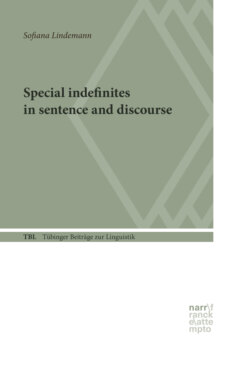Читать книгу Special Indefinites in Sentence and Discourse - Sofiana Lindemann - Страница 14
На сайте Литреса книга снята с продажи.
2.3 Accessibility as topicality
ОглавлениеThe notion of topic or topicality was in the attention of linguists and psycholinguists for a long time. For Chafe (1976), topics represent the amount of old information given in a discourse, while Reinhart (1982) describes topics in terms of “aboutness”, as discourses seem to be more about certain referents than about others. The traditional distinction between subjects and predicates made exactly this type of difference: between an entity the sentence was about (the subject referent) and another part that predicated on it (the predicate). Givón (1983) and the proponents of Centering Theory (Passoneau 1994, Grosz, Joshi and Weinstein 1995, Walker, Joshi and Prince 1998) offer two distinct but related referential management models in terms of topicality. Contrary to their forerunners’ view (e.g. Reinhart 1982), topicality is not paired with an atomic element within each clause, but is conceived as a graded notion. In comparison to the approaches to accessibility in terms of (cognitive) activation discussed in the previous Sections, which are mainly concerned with the amount of attention allocated to a particular referent in the preceding utterance, employing a backward-looking perspective, the proponents of the view of accessibility as topicality focus on entities that are going to be topical in the upcoming discourse, thus, on the forward-looking potential of referents. We will discuss Givón’s distance model and the Centering Theory in what follows.
